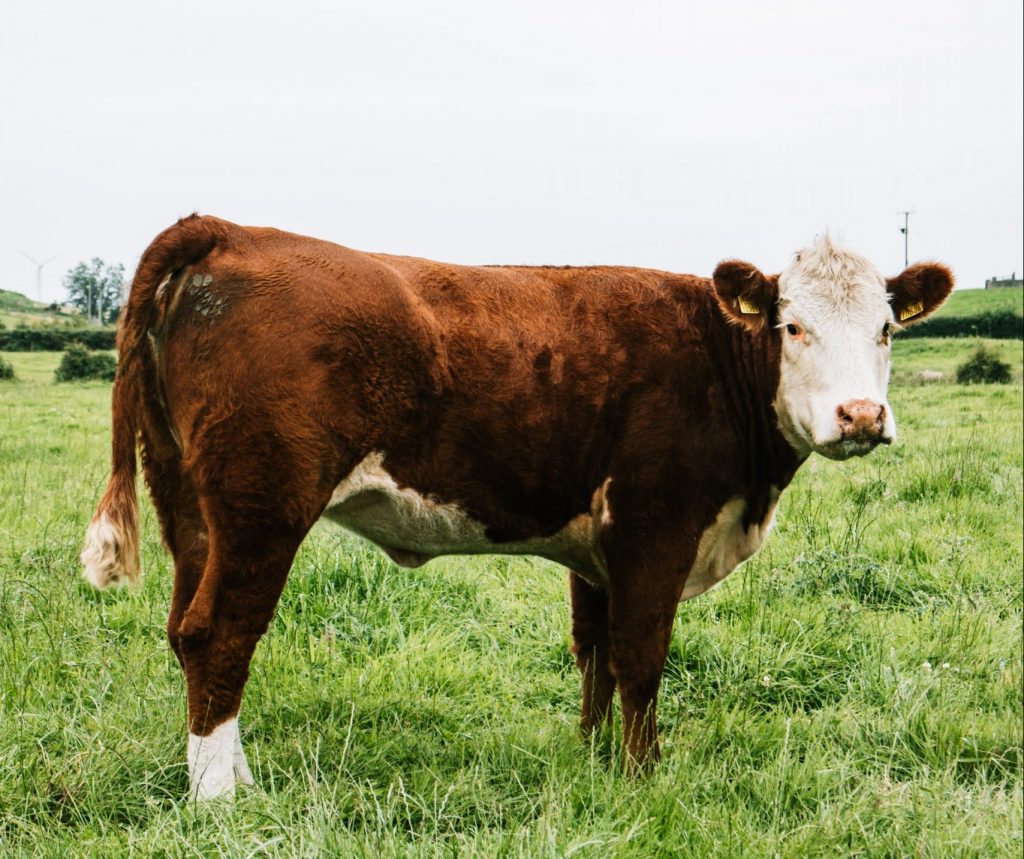Duncan Fisher details the hopes and challenges of a new project to bring back small-scale sustainable farming that keeps profit in Welsh communities. Will it work?
An ambitious plan to rebuild a local food economy is underway in Monmouthshire and the Brecon Beacons.
Like countless other rural areas, the vast majority of food grown in our region is exported straight out, and the vast majority of food eaten here is imported in. Local food chains, where all the profits lie, have shrivelled. What is left of the local food chain is small and niche – fantastic, but for the few.
From this shattered base, we need to re-build a local food economy that is:
- local and foundational,
- accessible to people who do not own wealth or land,
- carbon negative,
- generating healthy nutrient-rich food from healthy soil,
- creates more jobs per acre.
These are all key features of Welsh Government policy, they can all be delivered. But only with a vigorous locally driven implementation plan.
Rebuilding a local food economy is a formidable task when so much is broken. Everything has to be fixed at the same time for anything to happen.
Not only have local production and local food chains withered away, but there are not enough people to farm the land and no affordable homes for them to live in even if they came here. There are no small farm cooperative structures needed to be commercially competitive.
There is little financial support for small farm start-ups; Government subsidies and capital grants exclude all farms less than 5 hectares – such farms are the backbone of a new local food economy.
One big positive thing is already in place: local demand for locally grown food currently exceeds supply. This is good news for new farming enterprises – the business opportunities are immediate.
But how to start? How to make things actually happen commercially at scale beyond a niche or a pilot?
“Why 1200 acres? If this amount of land was put into the kind of small-scale agriculture outlined… it would produce weekly veg boxes for all 56,400 households in the region.”
How to act at the speed required by the climate/nature crisis and by the existential threats currently faced by local farms post Covid, post Brexit and as the Australian trade deal looms?
In May 2021, the “1200 Working Group” was launched as part of the Our Food project in the region.
The group of local entrepreneurs, food professionals, farmers and growers have agreed a solution to the chicken and egg conundrum for the Brecon Beacons and Monmouthshire: how to start rebuilding a local food economy?
The proposed answer is directly to acquire land and transfer it into a very different kind of farming enterprise – small scale (1-5 acres), high employment (1 person/acre), quick to generate revenue (1 year), highly productive/profitable (net £20,000/acre), low start-up cost, and most importantly, carbon-negative. (Figures based on JM Fortier, The Market Gardener, 2014 and reduced for the different context of Wales.)
Then to do all this at such a scale that it stimulates a mainstream local food economy serving everyone, not just a niche.
This would open the way to a new market for many other local farms producing a wide variety of food.
Local farms will make more money if they can sell their food directly, without third parties taking the profits of the food chain.
1200 refers to the number of acres of land that the Working Group is now seeking in our region, either through purchase or by leasing from landowners.
Why 1200 acres? If this amount of land was put into the kind of small-scale agriculture outlined above, with productivity levels reaching those established in multiple farms internationally, it would produce weekly veg boxes for all 56,400 households in the region.
Syniadau uchelgeisiol, awdurdodol a mentrus.
Ymunwch â ni i gyfrannu at wneud Cymru gwell.
This would stimulate a whole new local food economy supplying multiple customers – households, hotels and restaurants, public bodies, markets in nearby cities.
The Working Group’s first job will be to set up a local Land Trust to secure and manage this land and kick-start the economic transformation.
The Trust will make small plots of land available to a new and diverse generation of farming entrepreneurs.
Currently, these young people are largely locked out of farming because of astronomically high land prices, because the plots of land for sale are usually far too big for a start-up enterprise, and because leasing land like you would lease accommodation in the city for a business is not an established practice.
This approach to farming has multiple benefits. It focuses on combining farming and growing with building soil health and restoring biodiversity – known as “regenerative farming”.
Healthy soil is the basis for a healthy human diet, high in essential micronutrients.
It’s also a vast global carbon sink, drawing carbon dioxide out of the atmosphere and locking it away, actively helping to reverse climate change.
That’s why regenerative farming avoids ploughing, which damages soil structure, causing it to release carbon dioxide.
Likewise, this kind of farming also eschews artificial fertilisers, pesticides and herbicides, which all have negative impacts on soil health and biodiversity.
The pay-off comes in increased soil fertility and yields, but there are other benefits, too.
Healthy carbon-rich soil holds massively more water. This reduces runoff during heavy or prolonged rain, helping to prevent the kind of destructive flooding we’re increasingly seeing in our region.
“Young people already have to leave this region, as housing is bought by retirees and urban at-home workers. House prices are sky-rocketing.”
It also retains water better in times of drought, reducing the need for irrigation and improving crop security. Heavy rain and drought are with us to stay.
Regenerative farming is also highly productive economically and generates about 1 job per acre.
If land is leased, the start-up costs are low because heavy machinery needed to farm larger tracts of land is not needed. A good business plan ensures that production starts quickly, generating revenue within a year.
In future, cooperative structures among small farms will enable them to reach bigger markets, for example, farmer-owned local supermarkets, nearby cities, and the public sector.
When farms supply locally, the profits from the food chain stay with the farmers. It is mission critical that these farmers own the local food chain and keep all the profit ‘near the roots’.
The business models that lie behind these figures have been extensively demonstrated internationally by pioneering farms such as Ridgedale Farm, a 10 hectare smallholding in central Sweden, and are being tested right now in our region by a number of growers and producers.
Success for them will mean meticulous planning and extreme attention to marginal productivity gains – shaving off time and cost at every tiny opportunity. This requires precision planning and specially designed tools.
In parallel to the 1200 project, a whole range of additional activity must take place. Securing the land is necessary but not sufficient by itself.
A new “Regenerative Alliance” of regenerative farms is being created in partnership with the not-for-profit Conservation Farming Trust.
This is emerging from a current project, Our Food, co-funded by Rural Development Programme Funding via Monmouthshire County Council and Sustainable Development Funding from the Brecon Beacons National Park Authority.
Future funding has been applied for from Welsh Government and from Powys County Council.
A key priority will be to find people to farm the 1200 acres. Fortuitously, a new regenerative horticulture course is being launched this September in our region by Black Mountains College.
The opportunity to work in farming in our region will be promoted to young people living here (e.g. school/college visits to the farms) and through the UK-wide networks of farming entrepreneurs ready to start but currently unable to access land.
Housing is a major challenge. Young people already have to leave this region, as housing is bought by retirees and urban at-home workers, and as second homes and holiday cottages. House prices are sky-rocketing.
“Current Government policy says this is a hobby, not a business. This illustrates well the insanity of the current situation.”
Meanwhile, building housing on or near agricultural land is a big ‘no-no’ under current planning policy.
We will explore the possibility of farming settlements built on One Planet Development principles, with zero carbon impact. This will be hard; the well-intentioned Welsh One Planet scheme is proving immensely difficult to implement.
We must also secure start-up funding for these new farming enterprises. Bigger farms get subsidies and capital grants, but farms under 5 hectares are locked out of this.
Using the business models developed internationally, it would be possible to make a net income of £240,000/year on 5 hectares and employ 12 people. But current Government policy says this is a hobby, not a business. This illustrates well the insanity of the current situation.
Overall, we believe the key to achieving real change in the food and agriculture economy is a strongly-led local approach, that tackles every problem at the same time and aims not just to pilot new approaches, but to mainstream them.
The show is on the road in Monmouthshire and the Brecon Beacons.
All articles published on the welsh agenda are subject to IWA’s disclaimer.





